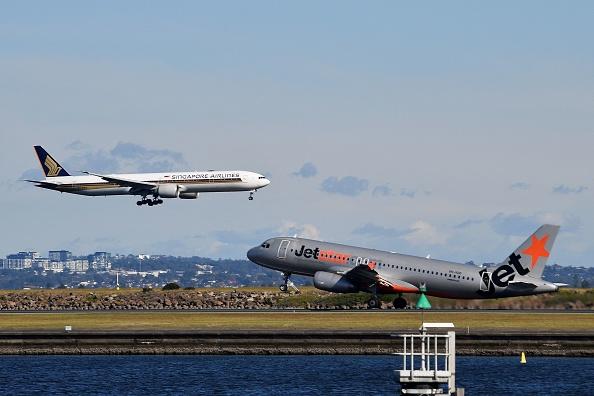
Australian Prime Minister Scott Morrison and Singapore Prime Minister Lee Hsien Loong have both vowed to work towards introducing quarantine-free travel between Australia and Singapore.
During Morrison’s brief visit to Singapore ahead of joining the Group of Seven (G7) leaders in the United Kingdom, the prime ministers hinted that a travel bubble between the two countries would only be permitted when the majority of the population in both states are vaccinated.
According to Lee, travel would be able to resume in a “safe and calibrated manner, when both sides are ready”.
“We need to prepare the infrastructure and processes to get ready to do this,” he stated.
“It starts with mutual recognition of health and vaccination certificates, possibly in the digital form. When all the preparations are ready, we can start small with an air travel bubble to build confidence on both sides.”
While there is no set timetable of when this could happen, Lee suggested one possible way to start would be to allow Singaporean students back into Australia to resume their studies.
“[Once] we get a pilot going we can widen the project and later on we can have a full travel bubble between the two countries … we hope it can be done as soon as possible,” he said.
As of this weekend, a COVID digital certificate will be available to Australians who have received two doses of a COVID-19 jab. It will be retrievable for anyone who has an Australian Medicare number.
From July, all national vaccination program providers will be required to report, where practicable, within 24 hours and no later than 10 days when a vaccination has been given to an individual in Australia.
The information is stored on the Australian Immunisation Register (AIR) that is maintained by Services Australia on behalf of the Department of Health.
Providers can upload the vaccination information via an online portal, either directly or through software they use at their practice that is integrated into the AIR. It uses an individual’s Medicare number for identification and linking. There are no penalties for failure to upload the information.
Morrison touted the sophistication of the digital vaccination certificate would be “another important building block” to making the Australia-Singapore travel bubble work.
“The sophistication of the systems both in Singapore and Australia, I think will enable both countries to ensure that we can get a system that works incredibly well. Once we have that capability, then, as the Prime Minister says, it then becomes a second consideration, we consider all the various medical issues and the various risks that we have to manage as leaders to ensure that we can go to the next stage successfully,” he said.
If it goes according to plan, Singapore would be the next cab off the rank where quarantine-free travel is permitted for Australians. It would follow a similar travel arrangement with New Zealand, which has been in place since April.
Meanwhile, Singapore was set to commence quarantine-free travel with Hong Kong at the end of last month. However, those plans have since been deferred due to worsening COVID-19 cases in Singapore. Both sides have agreed to review the situation in early July before a decision is made about another launch date.
The prime ministers added that the health ministries in both countries have signed a memorandum of understanding (MoU) to collaborate on healthcare and health technologies.
Separately, another MoU was signed between the Australian Federal Police and Singapore’s Home Team Science and Technology Agency. They said the MoU would enable “operational science and technology cooperation to develop and enhance capabilities for homeland security and law enforcement agencies to prevent crime and maintain law and order”.
Morrison and Lee also announced that an Australia-Singapore “fintech bridge” would be stood up, which builds on the digital economy pact that was signed between the two countries last year. The agreement covers collaboration in cross-border data flow, digital payments, e-commerce, artificial intelligence, and digital identities.
“The fintech bridge will enhance cooperation on fintech policy and regulation and look for opportunities for collaboration on joint innovation projects, as well as facilitate investments and new business opportunities in digital trade and financial services,” they said.






















